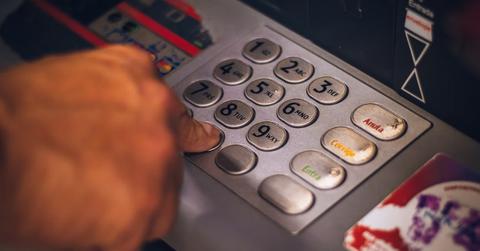Relax! Banks Can't Take Your Money in a Recession
Recession fears have been rising in the U.S. Is your money safe or can banks take your money in a recession or a depression? Relax, your money is safe.
June 30 2022, Published 10:18 a.m. ET

Recession fears have been rising in the U.S. and people have been looking at ways to prepare themselves for a recession. Along with being mentally prepared, you need to be financially prepared for a recession. With the economy showing signs of stress, many people wonder whether they should keep money in the bank during a recession. Is your money safe in a bank or can it take your money in a recession or a depression?
In the good old days, some people used to keep their money in coffee cans because they were wary of putting the money in banks. However, things have changed a lot and with every financial crisis, banking regulations have been modified to protect the interest of depositors. Banks are systemically important for economies. As a result, governments and central banks strive to keep the banking sector healthy.
Congress created the FDIC in 1933 for depositor protection.
Many U.S. banks failed during the Great Depression in the 1930s. At that time, Congress created the FDIC (Federal Deposit Insurance Corporation) as an independent agency. According to the FDIC, its goal is to “maintain stability and public confidence in the nation’s financial system.” It “insures deposits; examines and supervises financial institutions for safety, soundness, and consumer protection; makes large and complex financial institutions resolvable; and manages receiverships.”
The FDIC insures bank deposits up to $250,000.
The FDIC offers deposit insurance at all of the FDIC-insured banks. The agency covers the deposits at FDIC-insured banks by default, without the depositor having to pay for the insurance. According to the FDIC, “The standard insurance amount is $250,000 per depositor, per insured bank, for each account ownership category.”
Simply put, if you have deposited up to $250,000 in an FDIC-insured bank, you don't need to worry and your money is safe in the bank. But what if your deposit exceeds the limit?
Banks can face “run on thebank.”
Banks can face what's known as a “run on the bank” where they aren't able to pay back the depositors in case of large withdrawals. Banks don’t keep all the money on hand and it's lent to borrowers as well as invested in government bonds.
If a large number of depositors are concerned about the bank’s health and withdraw money simultaneously, the bank might find it hard to repay them in the very short term. However, in such cases, the Fed comes out to provide short-term liquidly support to the affected bank.
Banks can face troubles in a severe recession.
Since banking is a cyclical business, banks also face headwinds during a severe recession. If large depositors default on loans, banks could face pressure. However, there are checks and balances in place including limiting banks’ exposure to a single borrower. Also, the Fed has imposed capital requirements on banks to absorb any major losses from defaults.
The Fed also had a reserve requirement and banks were mandated to keep 10 percent of deposits in reserves. These reserves also ensured that deposits are cushioned from a crisis. The Fed lifted the requirement in March 2020 as it embarked on the most aggressive monetary policy easing in history.
In all probabilities, your money is safe in a bank even during a recession and banks can't “take it.” However, if the bank commits willful fraud, it can take your money.
No depositor has lost money in the bank since the FDIC was set up.
Ever since the FDIC was created, none of the depositors have lost any money parked in banks. This is also partially because several of the smaller banks have merged to create stronger entities. According to the Fed, there were only 4,377 commercial banks in the U.S. at the end of 2020, which is 71 percent lower than the 10,973 banks that operated in the country when the FDIC was set up.

